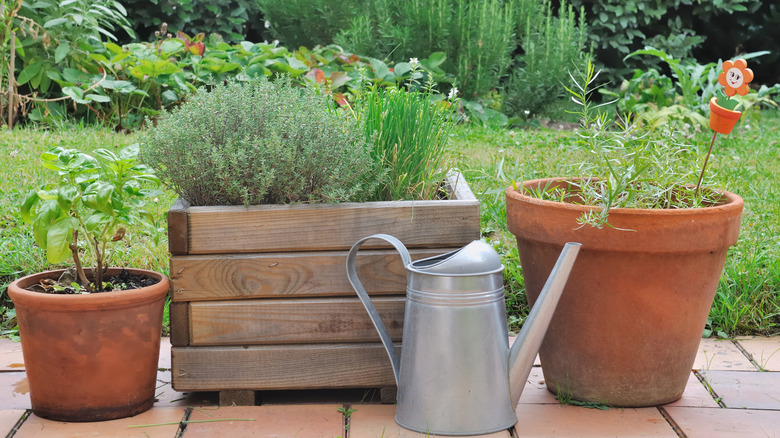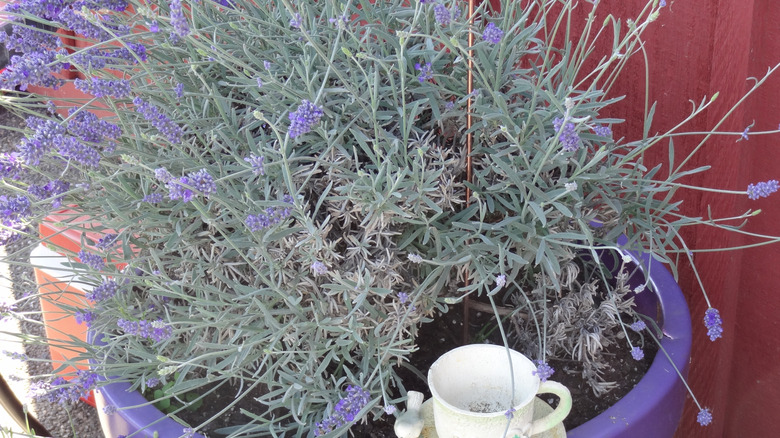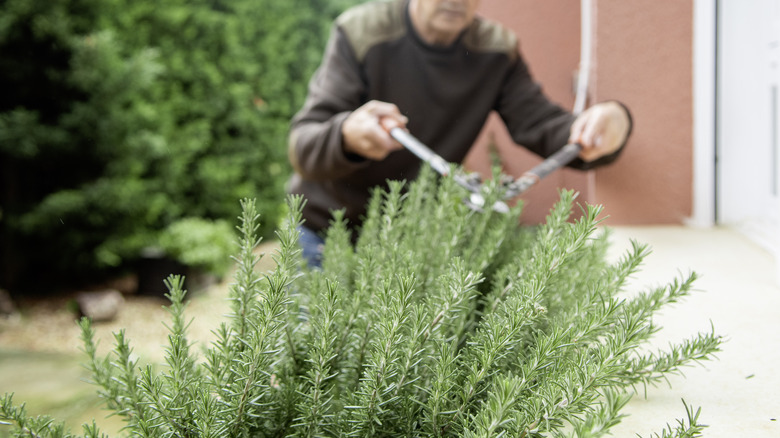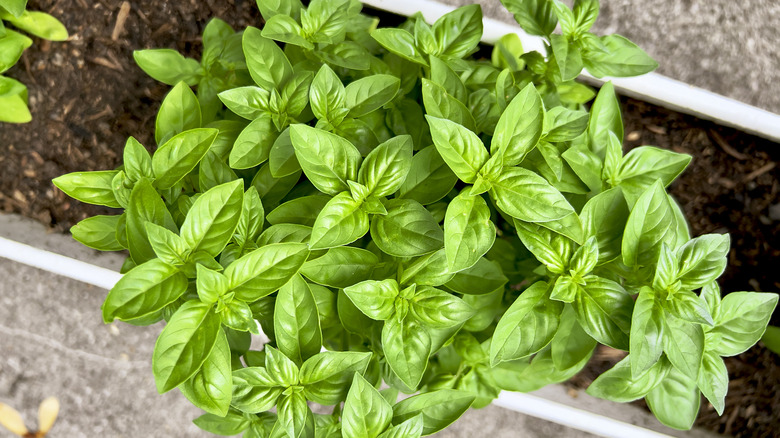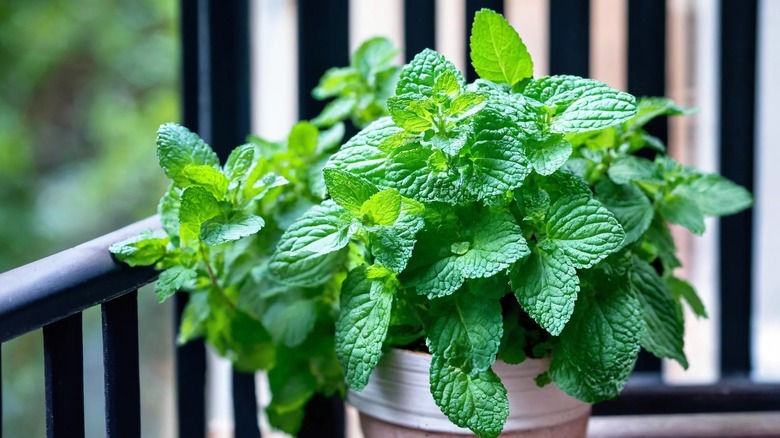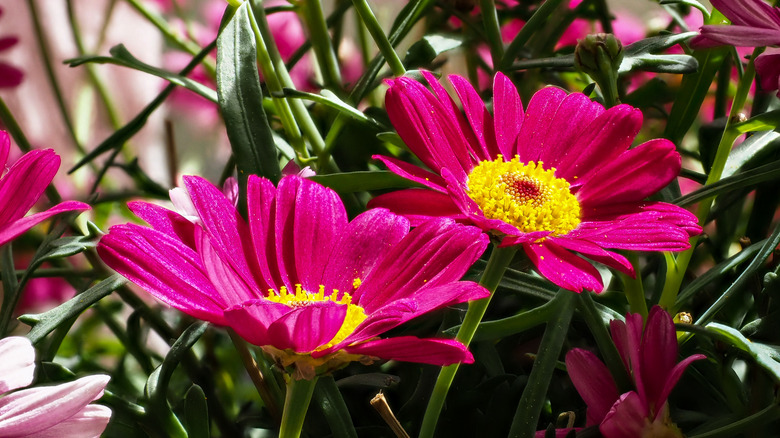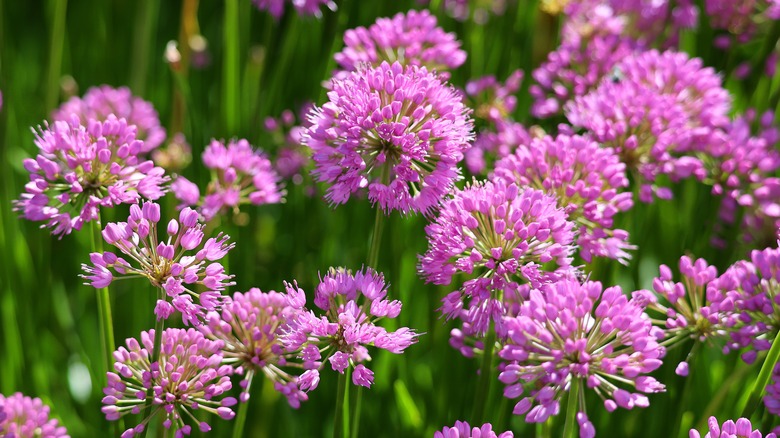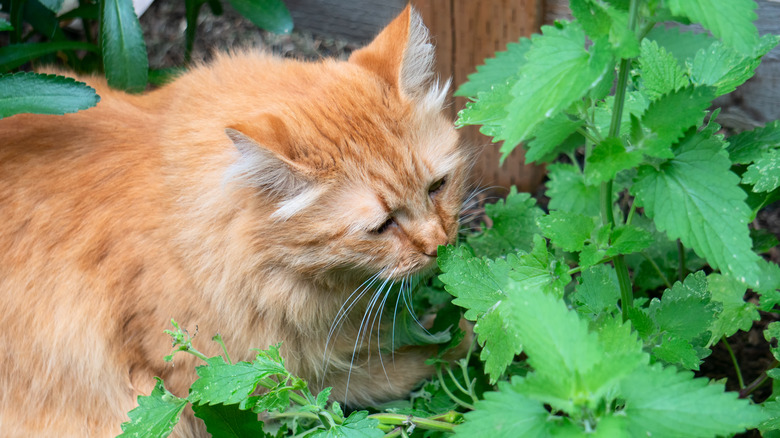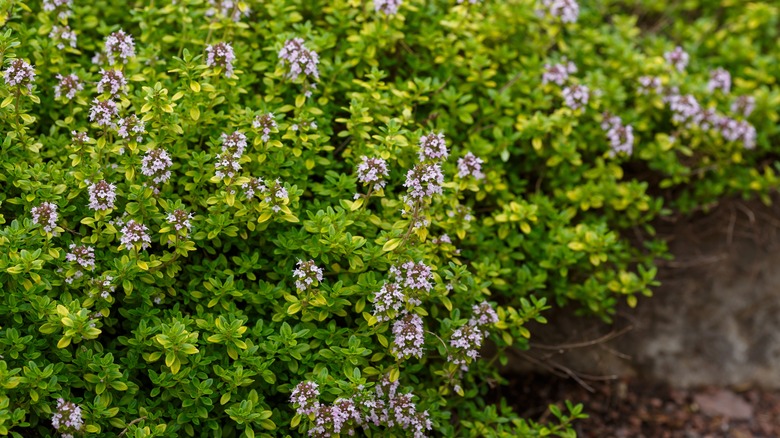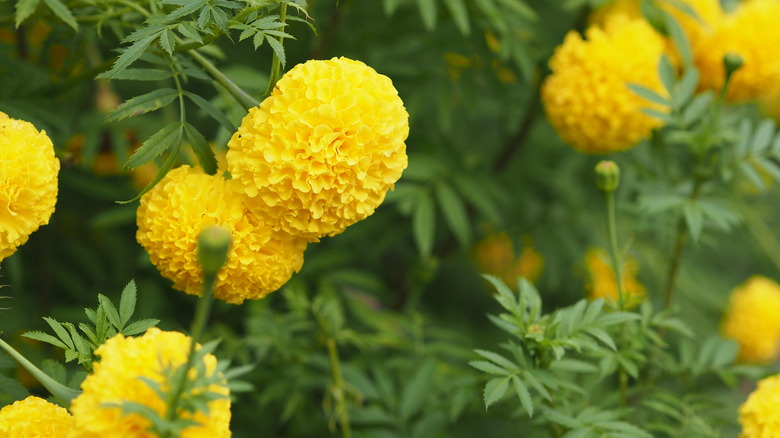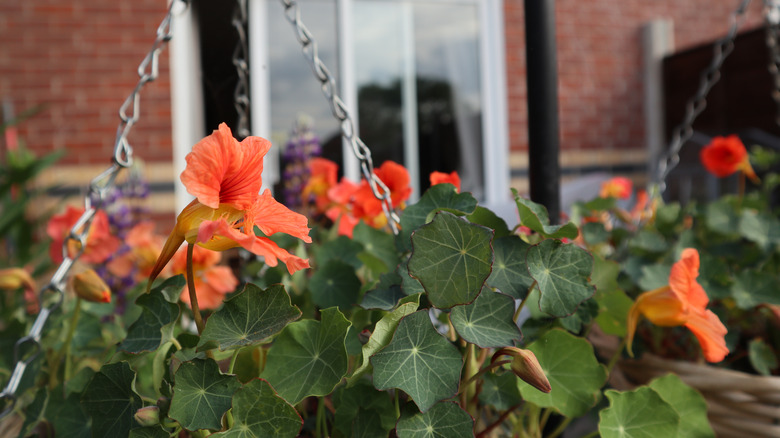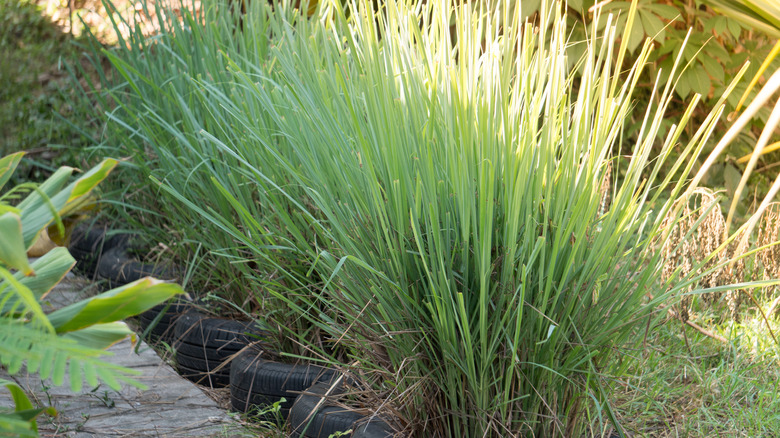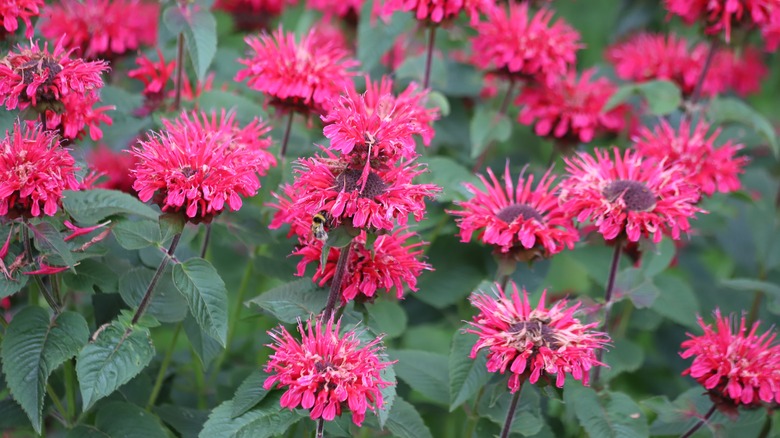Repel Flies Naturally With 12 Essential Garden Plants They Can't Stand
While the warm, balmy days of summer are excellent for enjoying some time outdoors, either relaxing with a book and a cooling drink, or having some friends over for a scrumptious barbecue, there's one thing that can spoil your fun – pesky flies! There's nothing more annoying than trying to wave those flying pests away from your face and the delicious food you've laid out on the table. Instead of reaching for the fly spray or dousing yourself with insect repellent, have you considered filling your garden with gorgeous plants that might actually repel flies naturally?
Although you might be able to keep annoying flies out of your home with common kitchen ingredients, there are also plenty of terrific plants that are beautifully scented thanks to the natural essential oils that they contain. While there's no guarantee that these will send every fly in the opposite direction, there's certainly no harm in adding a few of these garden plants to your flower beds or planting them in pretty pots that you can place strategically around your outdoor living spaces. Some of the more popular plants you can grow to repel flies include lavender, rosemary, basil, mint, and pyrethrum daisies.
Lavender
Lavender has a lovely, calming fragrance that can be enhanced when you lightly brush the soft gray-green leaves. While this scent is very pleasing to most people, it's not enjoyed by pest insects such as flies or even mosquitoes. There are different lavender varieties that you can grow, with English lavender (Lavandula angustifolia) being the most popular as it can be grown in USDA hardiness zones 5 through 9. Lavender needs a sunny spot in the garden with really well-drained soil, but it also does well when grown in containers.
Rosemary
You'll love the gorgeous fragrance of rosemary (Salvia rosmarinus) whenever you walk past the plant and brush the leaves. Thanks to this strong scent, it's believed that rosemary can repel common pests such as flies, as well as slugs and snails. You can grow this lovely edible herb in zones 8 through 10, in well-drained soil. As a bonus, the fact that they both enjoy the same growing conditions is why rosemary and lavender belong together in the garden. When in bloom, rosemary will also attract lots of pollinators.
Basil
Another highly aromatic herb you might want to consider growing in your garden or in a container is basil (Ocimum basilicum). Its strong scent can keep away pests such as flies and mosquitoes, and it's perfect for growing near the entrances to your house and around your outdoor entertainment areas. As a warm-season annual, basil grows well in most regions during summer, but it should survive as a perennial in zone 10. You'll also find that a basil "barrier" is your garden's best natural defense against bugs.
Mint
Mint (Mentha spicata) is one of those highly fragranced herbs you only want to grow in a container because its rampant growth can easily take over your garden. This aggressive habit means that it's easy to grow and there are quite a few different varieties you can try. Apart from its culinary uses and the fact that it makes a nice refreshing tea, mint is also good for repelling a number of pests, including flies and even ants. Mint grows well in zones 4 through 9 as a perennial, but can be grown in other areas as an annual.
Pyrethrum daisy
Formerly classified as chrysanthemums, pyrethrum daisies (Tanacetum coccineum subsp. coccineum) produce a natural insecticide (pyrethrin) that you're probably already familiar with. If you love lots of beautiful and colorful flowers, then you definitely want to grow this plant to keep those annoying flies away. This perennial can be grown in zones 3 through 7, and also makes an excellent addition to your cut flower garden. Just take care when cutting the blooms because the sap can cause contact dermatitis in some people.
Garlic
It's no secret that garlic (Allium sativum) is one of those plants that many garden pests, including flies, don't like. The pungent aroma of the strappy green leaves makes it a favorite for gardeners everywhere to grow around other vegetables. But garlic is also quite an attractive plant, especially when it develops those stunning, large flower heads. You can grow garlic in zones 4 through 9, either in the garden or in a pretty pot. Plus, you can harvest a few bulbs to use in your culinary dishes when needed.
Catmint
While your feline friends will make a beeline for this fragranced plant, pests like flies and mosquitoes won't want to go anywhere near catmint (Nepeta cataria). This herbaceous perennial belongs in the same family as regular garden mint, so it's no surprise that it has similar aromatic properties. Catmint can also be quite aggressive in its growth, so you might want to plant it in a container rather than in your garden in zones 3 through 9. On the plus side, bees and other pollinators will flock to the attractive blooms when they appear from spring through to fall.
Lemon thyme
Even deer and rabbits are unlikely to go anywhere near lemon thyme (Thymus citriodorus) because they're not fond of the strong citrusy scent, which should also help to keep flies and mosquitoes away from your outdoor areas. This lovely fragrant herb grows best in zones 5 through 8, and the showy pink flowers will attract pollinators. This is also a good choice if you're into waterwise gardening because it's both drought and heat-tolerant. It can even be used as a ground cover because it only grows to a maximum height of 12 inches.
Marigolds
There's a good reason why gardeners have been planting marigolds (Tagetes erecta) around their vegetable gardens for centuries. The vivid flowers have quite a strong odor that helps to deter quite a few different garden pests, including flies and mosquitoes. Marigolds are normally grown as annuals from seeds, in zones 2 through 11. They look equally as beautiful when planted in a garden bed as they do when grown in containers on your sunny patio, veranda, or balcony. You'll find that the vibrant blooms will attract butterflies, as well as hummingbirds.
Nasturtiums
If you've ever grown nasturtiums (Tropaeolum majus) in your garden, you'll know that the leaves have quite a distinct spicy type of odor, which is unpleasant for many garden pests such as flies and squash bugs. That's the reason why this colorful annual is often used in companion planting anywhere in zones 2 through 11. There are many varieties with some growing into a compact bushy plant, while others grow into massive vines that will clamber over almost everything in your garden. This makes them perfect for hanging baskets where the growth can be more easily controlled.
Lemongrass
There is some evidence that lemongrass (Cymbopogon citratus) can repel mosquitoes, so it would make sense that this highly scented herb would also help to keep flies at bay. As this is a tropical plant, it will only grow as a perennial in zones 8 through 11, but you can easily grow it in a large pot and bring it indoors over the colder months. Just make sure you give it plenty of water and keep your pets away from the plant. As a bonus, it's a great addition to your Asian-inspired meals.
Bee balm
While you might love growing bee balm (Monarda didyma) in your pollinator garden to attract bees, it's strong scent may also deter flies and other insect from around your home. You can grow this lovely herbaceous perennial with its delightful scarlet flowers in zones 4 through 9. You'll also find that it's deer and rabbit resistant, so it's perfect for planting as a border around your treasured flowers to act as a barrier. Or, grow it in a pot to keep on your sunny patio or balcony.
